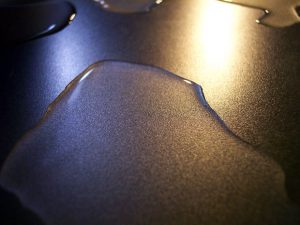If you are injured in a slip-and-fall accident in a Florida business, you may be entitled to collect damages. However, just because you fell and were hurt doesn’t automatically mean you are entitled to damages. 
Each state has its own set of criteria for what must be proven, though it’s often similar. Florida updated its slip-and-fall statute a few years ago. F.S. 768.0755 requires plaintiffs to show that the business created a condition that was dangerous or was directly informed about the condition (this is known as direct knowledge) OR that the hazardous condition existed for so long the business should have discovered it or that it occurred with such a frequency that it was foreseeable to the business. Plaintiff must also prove defendant business was wrong in failing to correct or warn patrons about the danger.
Meeting this proof burden means having a Fort Lauderdale injury attorney who will advise and help you in collecting pertinent evidence and throughout the legal process.
Recently a federal appeals court weighed the outcome of a slip-and-fall case, which was not decided in plaintiff’s favor. We share this not to discourage claimants – it’s always wise to seek input from an attorney who can help you decide whether you have a case worth pursuing – but to underscore how these claims may be scrutinized by the courts.
According to court records from the U.S. Court of Appeals for the Fifth Circuit, plaintiff was out to dinner with her husband and another couple when she fell while walking to the restroom. This restroom was just past the kitchen. At the time of the fall, plaintiff had been using crutches, as she had just had recent surgery on her heel. Plaintiff and her husband alleged there was a substance on the floor just outside the kitchen doorway and restrooms that caused plaintiff’s crutch to catch and slip underneath her, causing her to fall.
The case was deemed to be under federal jurisdiction, as plaintiffs are from Texas, but the restaurant is headquartered in Delaware but principally located in Georgia. Texas law applied as the restaurant was located in Texas. The court noted that in order to prevail on a premises liability claim in Texas (similar to in Florida), plaintiffs have to prove property owner had actual or constructive knowledge of the dangerous condition, that the dangerous condition caused an unreasonable risk of harm, that the property owner failed to use reasonable care in reducing or eliminating the risk and that this failure was the proximate cause of injury to the invitee.
The primary question in this case was whether the property owner had knowledge of the condition. In order to prove knowledge, plaintiff needs to show defendant created the condition, defendant actually knew the substance was there or that the condition more likely than not existed for such a time as to give the property owner sufficient time to discover it. Direct and circumstantial knowledge may be applicable.
The trial court, in a decision later affirmed by the 5th Circuit, found there was not enough evidence to show the restaurant had caused the substance to be on the floor, and any evidence to this was speculative. A manager opined it was possible that employees had tracked water or food from the kitchen to that area, but this suspicion was not sufficient to meet that proof burden. There also was no evidence that the restaurant had been directly informed of the slippery substance on the floor or that they had seen it. Finally, there was no indication of how long the substance had been there, which would be necessary in proving it had existed for such a length of time as for it to be reasonably discovered.
Call Fort Lauderdale Injury Attorney Richard Ansara at (954) 761-4011. Serving Broward, Miami-Dade and Palm Beach counties.
Additional Resources:
McCarty v. Hillstone Restaurant Group, July 18, 2017, U.S. Court of Appeals for the Fifth Circuit
More Blog Entries:
Dangerous Property in Florida Garners Lawmaker Attention, July 17, 2017, Fort Lauderdale Personal Injury Lawyer Blog
 Broward Injury Lawyer Blog
Broward Injury Lawyer Blog



